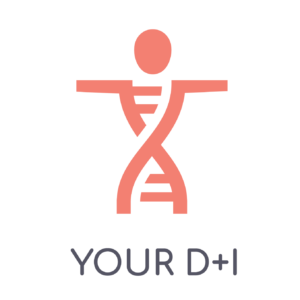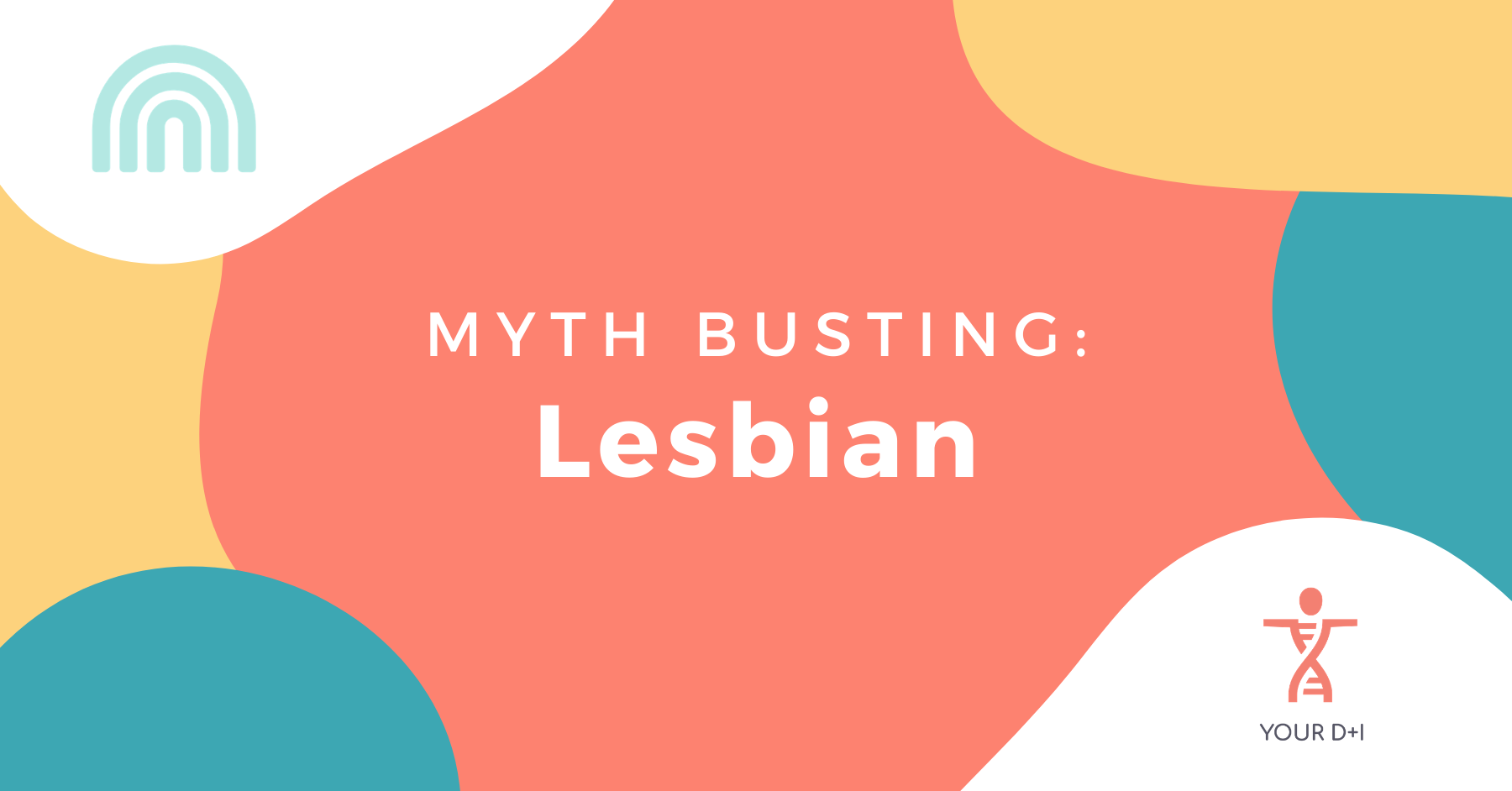Myth Busting: Lesbian
Happy Lesbian Visibility Day! Today, we’re helping raise awareness by busting harmful myths about lesbians in another instalment of Myth Busting: LGBT+. This blog series helps you learn about the LGBT+ community by refuting fallacies surrounding a certain topic. Previous posts in the series include Bisexuality, Intersex and Non-Binary. Now let’s get into definitions and some lesbian myths!
What is a lesbian?
Many myths and confusions surrounding the lesbian identity come from a lack of understanding of the word. From negative connotations (we’ll get back to those) to confusion around the definition, the word lesbian is often misinterpreted. That’s why we’re starting with a simple definition to clear things up.
A lesbian is a woman who is attracted exclusively or primarily to other women, of course including trans women. That doesn’t mean that all those who fit this description have to identify as a lesbian however. Some women prefer the word gay or even homosexual. This may be down to negative experience with the word lesbian or just personal preference. Either way, remember to only refer to someone’s sexuality in the terms they use.
Those who use the word lesbian to describe themselves can also vary somewhat from this definition. For example, some women who identify as lesbians are attracted to both women and non-binary people. And some non-binary people who are only attracted to women (and sometimes other non-binary people too) identify as lesbians.
While it’s not necessarily a myth, remember that lesbians can be (and be attracted to) non-binary people. Now, let’s get onto the lesbian myths we’ll be covering in this post.
‘Lesbian is a bad word’
We’ve already touched on this, but many people feel the word lesbian has negative connotations. This is often because we were told as children not to say ‘lesbian’ because it’s a bad/dirty word. This leads many lesbians to feel distanced from the word even if they feel the definition fits them perfectly.
One reason people see the word lesbian as a dirty word is its association with sex. While being attracted to other women is no more sexual than being attracted to men, gay women are often seen as sexual beings. The pornography industry reinforces this idea by producing a disproportionate amount of media it labels as ‘lesbian’.
So let’s be clear: lesbian is not a bad word. You don’t have to lower your voice or whisper when saying it. Being a lesbian is completely normal and no more sexual than any other orientation.
‘All lesbians are either butch or femme’
Another common myth about lesbians is that they all identity and fit into the categories of butch and femme. If you don’t know, a butch is a lesbian who expresses themselves in a more typically masculine way. They may have short hair and prefer to wear clothes typically deemed as menswear. A femme, on the other hand, is a lesbian who expresses themselves in a typically feminine way. They may wear more feminine clothing and make-up and have longer hair.
However, these two categories have never been the only ways to be a lesbian. And some say the labels are becoming less and less common in the community. For the many who do continue to use the labels, the line between them continues to blur. Femmes can have short hair, and butches can have long hair for example. And these two categories are far from the only ones a lesbian may fit into. Others include ‘high femme’ and ‘chapstick lesbian’.
There are many more categories within the lesbian community that we don’t have room for in this blog, and many lesbians don’t even identify with a category at all. The myth that all lesbians are either butches or femmes is no longer accurate (if it ever was).
‘There’s a man and a woman in every lesbian relationship’
A question that many gay couples dread is ‘who’s the man and who’s the woman?’ Those asking seem to forget the definition of a gay relationship – it’s between two people of the same gender. There simply isn’t a man and a woman. Just because you view the world in a heteronormative way, doesn’t mean others have to fit into this.
For lesbians, this myth often coincides with the previous one. This is because some straight people interpret the butch and femme dichotomy as an imitation of men and women. However, this is not the case at all. Butch and femme lesbians are just expressing themselves and their gender how they feel most comfortable.
This myth sometimes even extends to believing that all butches are tops and all femmes are bottoms. This is because they think that butches take the ‘man’s role’ and femme’s take the ‘woman’s role’. Again, this is completely untrue, and many butches and femmes take the opposite position.
This myth also seems to overlook the fact that many lesbians date within the same label as themselves. Some femmes prefer to date other femmes, and some butches date other butches.
‘Lesbians hate men’
The final myth we’re doing to discuss today is that all lesbians hate men. This likely comes from the idea that since lesbians aren’t attracted to men, they have no use for them. However, it is of course possible for lesbians to be friends with men, and many are.
Another reason for the prevalence of this myth is the association of lesbians with the feminist movement. Because they fight for the rights of women, feminists are often viewed as man-haters. In reality, feminists just want women to be on an equal playing field with men. They don’t want to tear men down. In fact, many feminists also fight for the rights of men who are parts of other minorities.
Perhaps the real reason for the stereotype that lesbians hate men is that men feel rejected by lesbians. In this case, men should remember that women don’t owe it to men to be attracted to them. And rejecting somebody you physically cannot even be attracted to does not mean you hate all men.
Share facts not fallacies
There are many myths about different LGBT+ people and topics, and lesbians are no exception. In fact, there are numerous fallacies about the sex lives of lesbians alone. This is why it’s so important to continue learning if you want to support the ever-changing LGBT+ community.
If you hear somebody spreading one of the lesbian myths we discussed today, make sure you share your knowledge. Being a good ally to the lesbian community, just like with others, means speaking up against misinformation. If your business needs help with inclusive language, check out our workshops on workplace banter and the LGBT+ community.


